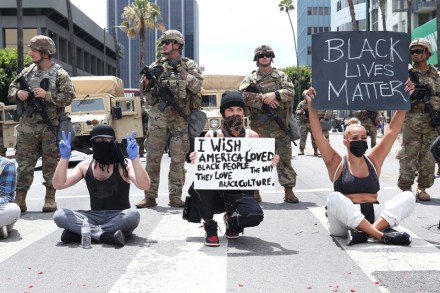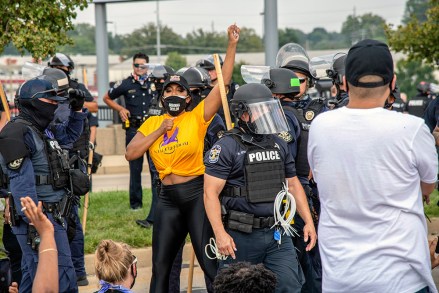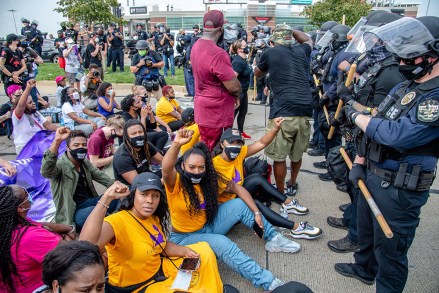Over four months after her tragic death, Breonna Taylor will be paid tribute to as the first person other than Oprah Winfrey to appear on the cover of O Magazine in its 20-year history. On July 30, Oprah, herself, took to her Instagram account to unveil the first look at the September issue. Along with the stunning portrait of Breonna, created by talented digital artist Alexis Franklin, Oprah shared an inspiring message with her followers.
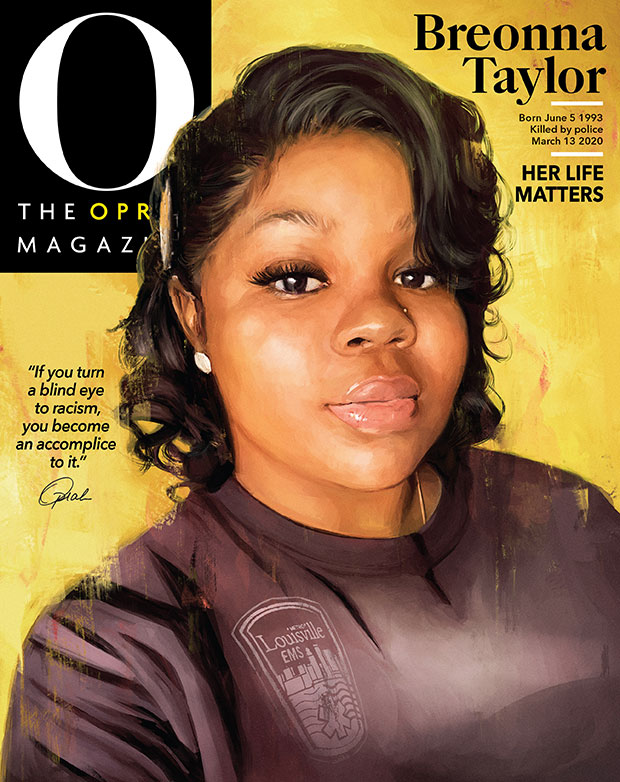
“What I know for sure: We can’t be silent,” Oprah urged those reading the caption to her post. “We have to use whatever megaphone we have to cry for justice. And that is why Breonna Taylor is on the cover of [Oprah Magazine]. The September issue honors her life and the life of every other Black woman whose life has been taken too soon.”
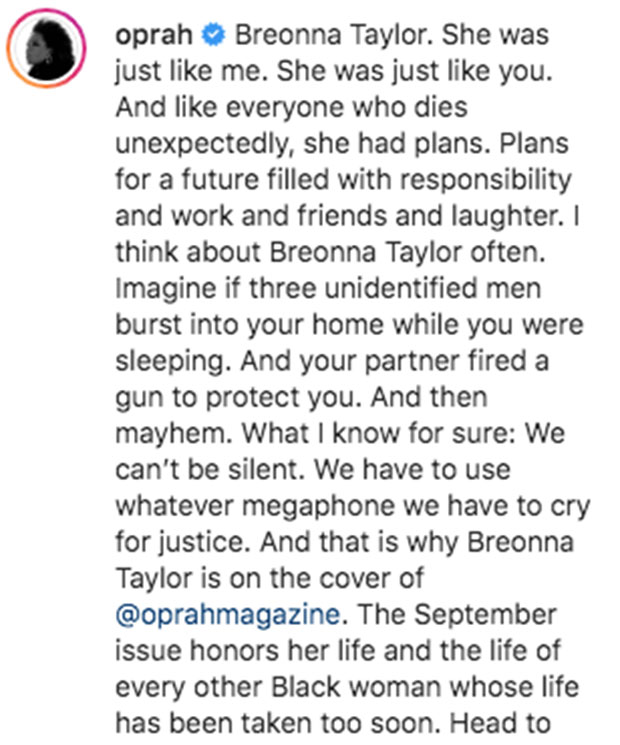
Along with the incredible, beautiful cover, Oprah also honored Breonna in a very personally way, writing about the phenomenal life that was lost. “Breonna Taylor had plans. Breonna Taylor had dreams. They all died with her the night five bullets shattered her body and her future,” she wrote in the forthcoming issue. “She was the same age as the two daughter-girls from my school in South Africa who’ve been quarantining with Stedman [Graham, Oprah’s longtime partner] and me since March. In all their conversations I feel the promise of possibilities.”
Oprah eloquently wrote about how the lives of the young Black women she knows, “shine with the light of hopefulness,” and how that very same light “was taken away from Breonna in such a horrifying manner.” In the weeks that followed Breonna’s death at the hands of law enforcement, American citizens turned their attention to the deaths of other Black citizens like George Floyd, killed on May 25, and Ahmaud Arbery, who was killed on Feb. 23.
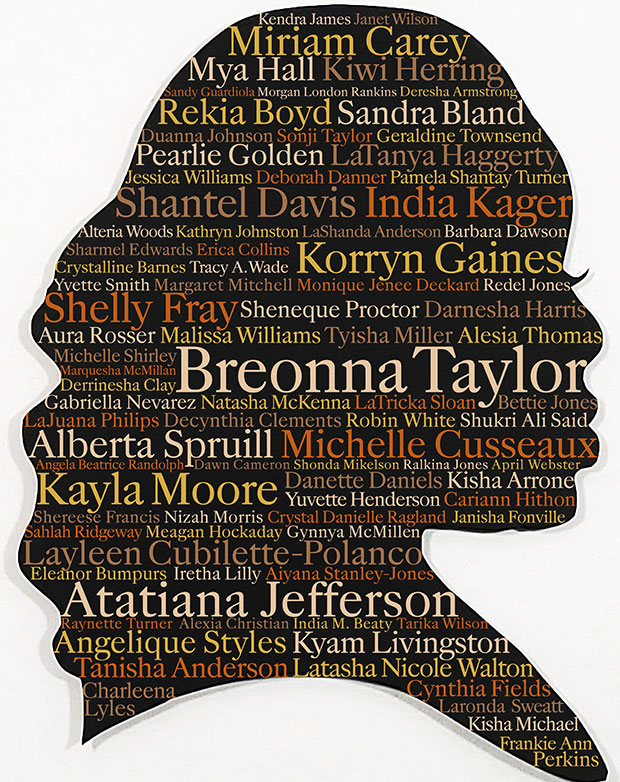
With Oprah’s latest issue of her magazine, she’s not only honoring and remembering Breonna, but also the many lives of Black women whose lives were cut far too short by police brutality. Oprah describes having a collection of property ledgers from former plantations, detailing the names of Black women who were bound in slavery. “As a great-great-granddaughter of enslaved people, I know that in a different era my name would have been in someone’s ledger,” she noted.
“Those ledgers come to mind when I see the names of Black women who were killed by police. Breonna Taylor and too many others like her. I see the names, I think of the ledgers, I feel the connection down the generations: the refusal to value Black women’s lives. And I feel a personal connection. Because I am these women. These women are me.”
